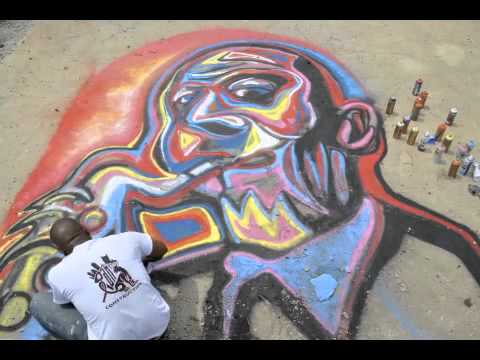http://www.coreybarksdale.com/media_kit/barksdale_media_kit.pdf
http://www.coreybarksdale.com/media_kit/atlanta_artist_corey_barksdale_art_gallery.pdf
William “Count” Basie (August 21, 1904 — April 26, 1984[1]) was an American jazz pianist, organist, bandleader, and composer. His mother first taught him piano and he started performing in his teens. Dropping out of school, heWilliam “Count” Basie (August 21, 1904 — April 26, 1984[1]) was an American jazz pianist, organist, bandleader, and composer. His mother first taught him piano and he started performing in his teens. Dropping out of school, he learned to operate lights for vaudeville and improvised to accompany silent films at a local theater in his town of Red Bank, New Jersey. By 16, he increasingly played jazz piano at parties, resorts and other venues. In 1924, he went to Harlem, where his performing career expanded; he toured with groups to the major jazz cities of Chicago, St. Louis and Kansas City. In 1929 he joined Bennie Moten’s band in Kansas City, and played with them for years, until Moten’s death in 1935.
That year Basie formed his own jazz orchestra, and in 1936 took them to Chicago for a long engagement and their first recording. He led the group for almost 50 years, creating innovations like the use of two “split’ tenor saxophones, emphasizing the rhythm section, riffing with a big band, using arrangers to broaden their sound, and others. Many notable musicians came to prominence under his direction, including the tenor saxophonists Lester Young and Herschel Evans, the guitarist Freddie Green, trumpeters Buck Clayton and Harry “Sweets” Edison and singers Jimmy Rushing and Joe Williams. Basie’s theme songs were “One O’Clock Jump,” developed in 1935 in the early days of his band, and “April In Paris”.
A Tribe Called Quest is an American hip hop group, formed in 1985, [1] and is composed of rapper/producer Q-Tip (Kamaal Ibn John Fareed, formerly Jonathan Davis), rapper Phife Dawg aka Phife Diggy (Malik Taylor), and DJ/producer Ali Shaheed Muhammad. A fourth member, rapper Jarobi White, left the group after their first album but rejoined in 1991. Along with De La Soul, the group was a central part of the Native Tongues Posse, and enjoyed the most commercial success out of all the groups to emerge from that collective. Their innovative fusing of hip hop and jazz has had a lasting impact on hip hop music, helping to expand the art of hip hop production. Many of their songs, such as “Bonita Applebum”, “Can I Kick It?”, “I Left My Wallet in El Segundo”, “Scenario”, “Check the Rhime”, “Jazz (We’ve Got)”, “Award Tour” and “Electric Relaxation” are regarded as classics by the hip hop community.
They released five albums between 1990 and 1998. The first three LPs were highly acclaimed, but the group disbanded in 1998. In 2006, the group reunited and toured the U.S., and planned to release an album after some works in the studio. The group is regarded as iconic pioneers of alternative hip hop music, having helped to pave the way for innovative hip hop artists.[2] John Bush of Allmusic called them “the most intelligent, artistic rap group during the 1990s,”[3] while the editors of About.com ranked them #4 on their list of the “25 Best Rap Groups of All Time.”[4] In 2005, A Tribe Called Quest received a Special Achievement Award at the Billboard R&B Hip-Hop Awards in Atlanta.[5] In 2007, the group was formally honored at the 4th VH1 Hip Hop Honors.
John Birks “Dizzy” Gillespie (play /ɡɨˈlɛspi/; October 21, 1917 — January 6, 1993) was an American jazz trumpet player, bandleader, composer and, occasionally, singer.[1]
Allmusic’s Scott Yanow wrote, “Dizzy Gillespie’s contributions to jazz were huge. One of the greatest jazz trumpeters of all time (some would say the best), Gillespie was such a complex player that his contemporaries ended up copying Miles Davis and Fats Navarro instead, and it was not until Jon Faddis’s emergence in the 1970s that Dizzy’s style was successfully recreated . . . Arguably Gillespie is remembered, by both critics and fans alike, as one of the greatest jazz trumpeters of all time.”[2]
Gillespie was a trumpet virtuoso and improviser, building on the virtuoso style of Roy Eldridge[3] but adding layers of harmonic complexity previously unknown in jazz. His beret and horn-rimmed spectacles, his scat singing, his bent horn, pouched cheeks and his light-hearted personality were essential in popularizing bebop.
In the 1940s Gillespie, together with Charlie Parker, became a major figure in the development of bebop and modern jazz.[4] He taught and influenced many other musicians, including trumpeters Miles Davis, Fats Navarro, Clifford Brown, Arturo Sandoval, Lee Morgan, Jon Faddis[5] and Chuck Mangione.[6]
source

